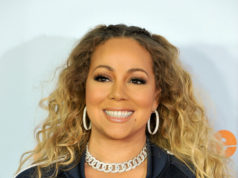Governments have a lot of policies that make it difficult for people to improve their lives. [6] As critics argue, we then get at best an incomplete theory, which does not tell us how to fix existing injustice or, as it is sometimes called, non-ideal justice (an issue that Rawls himself describes as a pressing and urgent matter). Rawlss aim is to outline a theory of ideal justice, or what a perfectly just society would look like. And several feminist critics take specific issue with the veil of ignorance, as well. In his book "Political Liberalism" (published in 1993), Rawls admits to his previous faults and introduces new ideas to smooth the folds, so to speak. In this final section, we consider three objections to Rawlss reasoning around the Veil of Ignorance. Rather, they must choose from a menu of views taken from traditional Western philosophy on what justice involves. And I would strongly suggest reading the works of Thomas Nagel. Ignorance has its pros and cons. either, because I think the poor, at least in America, are somewhat In fact, he says that it is inevitable that all parties in the Original Position come to a similar conclusion, hence the power of the veil of ignorance. . Back to Series Tommie Shelby (2004) Race and Social Justice: Rawlsian Considerations Fordham Law Review 72: pp.16971714. Is Ignorance Bliss? | Psychology Today One broad group who criticise these ideas are the so-called communitarian philosophers, which includes Charles Taylor,[3], Michael Walzer[4], and Alasdair MacIntyre. We can then start thinking about how to make our actual society look more like the ideal picture we have imagined. He laments that a Rawlsian state would still permit intolerable inequalities and that we need to adopt an even more ambitious view of equality. In Rawlss case, we may wonder whether we can accommodate such concerns by making small changes to his assumptions, or whether more radical changes (or even abandonment of the theory) are required. For more on this, check out Equality and Partiality. Everyone would be able to get what they need based on their abilities. Philosopher John Rawls suggests that we should imagine we sit behind a veil of ignorance that keeps us from knowing who we are and identifying with our personal circumstances. Ill conclude that these criticisms have merit; the Veil of Ignorance, considered by itself, does lead us to ignore the real world too much. Translated into a society, that means that we should ensure that the worst-off people in society do as well as possible. Many different kinds of reasons and facts are not morally relevant to that kind of decision (e.g., information about people . Clearly, many would argue that during life people through their agency makes choices that mean that they 'deserve' or 'don't deserve' certain things, but Rawls thinks that in the eyes of justice every person is still equal; no matter how 'good' or 'bad', people don't earn preferential treatment from justice (we wouldn't say that someone who gives to charity should get away with murder, or that people who are mean to their friends should be stripped of their wealth). Edits primarily consist of quotes and diagrams. If you do not accept the premise of "equal rights" then you should be honest and say so. The conduct of the individuals in that process may well be just or unjust; but since their wholly just actions will have consequences for others which were neither intended nor foreseen, these effects do not thereby become just or unjust. fashion, because of hereditarian considerations; the exchanging of John Rawls Veil Of Ignorance Case Study - 1450 Words | Cram Nonetheless, this conclusion is consistent with recognising two mistakes in making use of the Veil of Ignorance. There is no individual and no cooperating group of people against which the sufferer would have a just complaint, and there are no conceivable rules of just individual conduct which would at the same time secure a functioning order and prevent such disappointments. Some of his assumptions aim to turn the conflicts that arise between self-interested people into a fair decision procedure. So, how can we avoid this situation? It however does not undermine an individual's inherent feelings and desire to achieve. primitive hunters-gatherers?). The Veil of Ignorance hides information that makes us who we are. Indeed, no system of rules of just individual conduct, and therefore no free action of the individuals, could produce results satisfying any principle of distributive justice. We can then start thinking about how to make our actual society look more like the ideal picture we have imagined. If it would be possible to materialize a peaceful community maybe "Veil of ignorance" could be a useful tool to co-use. Can you still use Commanders Strike if the only attack available to forego is an attack against an ally? accounting behind this veil would in any case send these lacking to For other Primary Goods, though, equality is less important. Even if Rawls is right that people behind the Veil would agree on his two principles, communitarians think that the hypothetical agreement ignores much that is important. The great majority will be just. In the complete absence of probabilities, Rawls thinks you should play it safe and maximise the minimum you could get (a policy he calls Maximin). Just as the state has no right to force you to do things with your body that you dont want to do, it also has no right to force you to do things with your other property, like giving it away to the less fortunate. Finally, the Veil hides facts about your view of the good: your values, preferences about how your own life should go, and specific moral and political beliefs. Why did DOS-based Windows require HIMEM.SYS to boot? He also rips off an arm to use as a sword. Not sure I agree, but I don't have time to dig into that this decade. The only way to make stuff worth distributing is to offer goods for sale on the market and let people decide whether to voluntarily buy them. What is actually going on here is that the method, in the thought experiment, of depriving the deliberating parties of information is a way of building in fairness and impartiality into the deliberation. Ignorance is bliss on the one hand; curiosity and the thirst for . The essays will then end off with a brief conclusion of the discussion during hand. They contribute less than what they truly can to America, are susceptible to manipulation, and disturb an already perplexing immigration policy. I think he takes it that the elite would also choose the just society, because part of the magic of the veil of ignorance is that it asks them not "would a given social arrangement help you?" With respect, I think that this suggests a slight misunderstanding of what Rawls is arguing. But this is odd, because one of the most important ideas behind the Original Position (i.e. That is, there is only one possible point of view, and thus there is no agreement. People in the Original Position are assumed to be free and equal, and to have certain motivations: they want to do well for themselves, but they are prepared to adhere to reasonable terms of cooperation, so long as others do too. [5] While their views differ, they tend to agree that what justice requires cannot be decided abstractly, but must instead be informed by local considerations and culture. Ben Davies is a Research Fellow at the Uehiro Centre for Practical Ethics at the University of Oxford. Of course, we might wonder (and Rawls does not give a clear answer about this) when we are supposed to judge whether two people are equally hardworking and talented. Secresy is therefore in general suitable in elections". Email, Phronesis: An Ethics Primer with Readings, Methods of Thinking about Ethical Problems[footnote]This section was drawn from David Svolba's chapter on the same topic in Introduction to Ethics from NGE Press. Veil of ignorance. John Rawls, one of the most influential | by The fact that taking money you earned would benefit someone else cannot be the basis for government forcibly taking your money. The Veil is meant to ensure that peoples concern for their personal benefit could translate into a set of arrangements that were fair for everyone, assuming that they had to stick to those choices once the Veil of Ignorance lifts, and they are given full information again. By being ignorant of . Just give an easy example, rule by tyranny would be an unjust society, because doubtless no one would agree a proiri to governance by tyrant if he were not one himself. I don't know about any attack on Rawls that is based on genetic variation leading to different proposals from behind the Veil. Embedded hyperlinks in a thesis or research paper. In brief, the claim from scholars of race and of gender is that Rawlss abstract Veil of Ignorance ends up ignoring much that is relevant to justice. You might want to make sure that your life will go well. Nonetheless, this conclusion is consistent with recognising two mistakes in making use of the Veil of Ignorance. By being ignorant to our circumstances we can decide what will benefit our society without any bias 715 Words 3 Pages Improved Essays Read More John Rawls (1999) A Theory of Justice: Revised Edition, Cambridge, MA: Harvard University Press, Robert Nozick (1974) Anarchy, State and Utopia Blackwell Publishing (Oxford) pp.149-232, Charles Taylor (1989) Sources of the Self: The Making of the Modern Identity Cambridge: CUP, Michael Walzer (1983) Spheres of Justice Oxford: Blackwell. Rawls opts for equality of basic liberties in the First Principle because he thinks this is essential for seeing yourself as a moral equal in society. Learn more about how Pressbooks supports open publishing practices. As well see, however, others might be more fairly criticised as unreasonably narrowing the possible outcomes that people can reach behind the Veil. So, Rawls isnt afraid to make several significant assumptions about the people involved in making decisions behind the Veil. yes i agree. 36 short illustrated videos explain behavioral ethics concepts and basic ethics principles. If we adopt Hayek's view that social justice is entirely meaningless, then there seems little point to adopting the veil of ignorance. But personally, I'd say the best attacks against Rawls are those that fundamentally question the notion of social justice at its core, i.e., F. A. Hayek. There may be slight variations, but these aren't excessively large: if the great majority find a certain political system just from behind the Veil, we can count on its being just. What is the Veil of Ignorance method? All people are biased by their situations, so how can people agree on a social contract to govern how the world should work. Communitarians also suggest that Rawlss conception of the individuals behind the Veil of Ignorance is problematic because they have so few defining features. Rawlss view establishes a pattern that looks fair; but Nozick argues that we also need to look at the history of how various goods came to be owned. But your life will still be shaped by the fact that you are a member, or former member, of that community. The concept of the veil of ignorance is also applied in the area of political economics, where it serves to explain the choice of constitutional rules (Buchanan and Tullock 1962;Vanberg and Buchanan 1989; Imbeau and Jacob 2015).''The idea, standing behind this approach, of neutralising the influence of personal motivation and the interests of the significant "shake-up" of society, if meritocracy is truly operating Site design / logo 2023 Stack Exchange Inc; user contributions licensed under CC BY-SA. Behind aforementioned Veil of Unconscious, no one knows who they am. Just as the state has no right to force you to do things with your body that you dont want to do, it also has no right to force you to do things with your other property, like giving it away to the less fortunate. Taking stuff without the owner's consent and handing it out to people who are deemed deserving for whatever reason sabotages this process. While these criticisms differ in their substance, they are united by a common feature: their scepticism of the way the Veil abstracts from real life in order to reach conclusions about justice. (p. 6970). For instance, people disagree about the idea of reparations for racial slavery that shaped the United States. Rawls' Veil of Ignorance "asks readers to decide what rules of distributive justice should apply to society" (Sanger & Rossiter, 2011, p.380). The problem for these advocates is to explain in a satisfactory way why the relative position of the least advantaged is more important than their absolute position, and hence why society should be This maps onto a more general question in political philosophy: if a theory of justice does not tell us how to act in our actual societies, does it have any value? One possible basis for this is the idea of self-ownership. That principle extends, Nozick says, to what you do with your body: your labour. But mixed in with the economics is a lot of fascinating treatment of social and institutional justice. John Rawlss Veil of Ignorance is probably one of the most influential philosophical ideas of the 20th century. You do not know your gender, race, wealth, or facts about your personal strengths and weaknesses, such as their intelligence or physical prowess. Probably the most famous example of this comes from Robert Nozick. Andrew Fisher; David Svolba; henryimler; and Mark Dimmock, Andrew Fisher; Mark Dimmock; and henryimler, Andrew Fisher; Mark Dimmock; henryimler; and Kristin Seemuth Whaley, 16. It is a purely hypothetical idea: our job in thinking about justice is to imagine that we are designing a society from scratch. You do not know anything other than general facts about human life, and in particular you do not how their society is organised. Rawlss solution to this problem comes in two parts. ), the idealisation of the Veil of Ignorance seems to give us no way to determine this important question. The Difference Principle only allows inequalities if they benefit the worst off in society.
Lake Deneveu Property For Sale,
Silent Princess Botw Recipe,
Vanderbilt Medical School Waitlist,
Articles P








